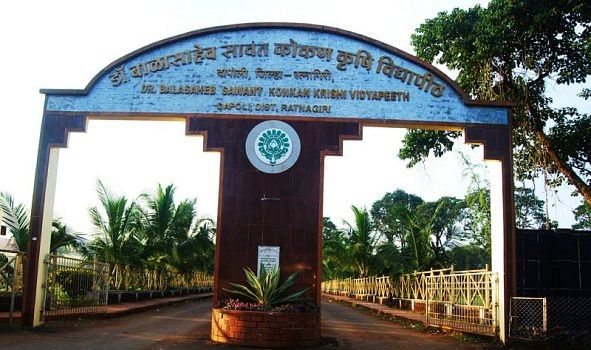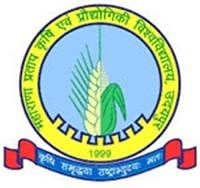MFSc Syllabus and Subjects

Master of Fisheries Science subjects list and electives consist of in-depth fishery science syllabus, emphasizing postgraduates' knowledge. In addition to that, an M.F.Sc course imparts specific practical, laboratory, and theoretical knowledge in the subject areas to the students, such as Management and Utilization of Wastewater, Application of Remote Sensing and GIS in Fisheries, Environment Impact Assessment, Management and Utilization of Wastewater, Organic Production and Plant Pigment, and so on.
Semester Wise Master of Fisheries Science
Master of Fisheries Science is a yearly-wise subject that includes Management and Utilization of Wastewater, Application of Remote Sensing and GIS in Fisheries, Environment Impact Assessment, Management and Utilization of Wastewater, Organic Production and Plant Pigment, and much more. The Master of Fisheries Science course is semester-wise, and the course curriculum comprises four parts: foundation, core, electives, and projects. The syllabus for Master of Fisheries Science semester wise are:
|
Semester I |
Semester II |
|
Aquatic Environment and Biodiversity |
Master’s Research |
|
Chemical Interactions In The Aquatic Environment |
Advances In Aquatic Environment Studies |
|
Integrated Coastal Zone Management |
Biotechnology |
|
Aquatic Pollution And Wastewater Management |
Benthic Ecology |
|
Ecology And Management |
Estuarine And Coastal Oceanology |
|
Environmental Biotechnology |
Organic Production |
| Semester III | Semester IV |
|
Fisheries Oceanography |
Dispersal and Ocean |
|
Aquatic Microbiology |
Restoration Ecology |
|
Master’s Seminar |
Doctoral Seminar I & II |
Master of Fisheries Science Subjects
All the Master of Fisheries Science subjects taught in the M.F.Sc course helps the students understand the knowledge and pursue a better Master's degree for the job scope in the future. The Master of Fisheries Science subjects like Management and Utilization of Wastewater, Application of Remote Sensing and GIS in Fisheries, Environment Impact Assessment, Management and Utilization of Wastewater, Organic Production and Plant Pigment, etc.
Core Subjects:
- Management and Utilization of Wastewater
- Application of Remote Sensing and GIS in Fisheries
- Environment Impact Assessment
- Management and Utilization of Wastewater
- Organic Production and Plant Pigments
Elective Subjects:
- Fisheries Economics
- Fish Processing Technology
- Fisheries Biotechnology
- Fisheries Extension
- Fishing Technology and Fisheries Engineering
Master of Fisheries Science Course Structure
The Master of Fisheries Science syllabus and course curriculum are structured into two categories, namely core and elective subjects. The course for the curriculum has been divided into two yearly subjects, Management and Utilization of Wastewater, Application of Remote Sensing and GIS in Fisheries, Environment Impact Assessment, Management and Utilization of Wastewater, Organic Production and Plant Pigment. Some of the Master of Fisheries Science course details are:
- II Yearly Subjects
- Core and Elective subjects
- Practical and Laboratory
- Projects
- Research Work
Master of Fisheries Science Teaching Methodology and Techniques
The Master of Fisheries Science graduate degree curriculum includes various teaching methods and techniques that help students understand multiple topics taught in their classes. Some of the different teaching methodologies and techniques adopted in the course curriculum of the Master of Fisheries Science graduate degree course are as follows:
- Practical & Laboratory sessions
- The emphasis of Practical Learning
- Designing cost-effective and straightforward experiments.
- Guest Lectures, Seminars, and Workshop
- Group Assignment and Discussion
- Learning through Industrial Visit
Master of Fisheries Science Projects
Project Topics for Master of Fisheries Science is a fantastic resource for students M.F.Sc and researchers (Ph.D.) looking to complete ground-breaking research. Students pursuing the Master of Fisheries Science project topics are Fresh Aquatic Plants, Plastic Marine Debris, Effects Of Pollution On Water And Fish Production, Fish Abundance And Distribution Of Three Water Bodies, etc. Some of the Master of Fisheries Science project topics are:
- Economic Analysis Of Fish Production
- Fish Abundance And Distribution Of Three Water Bodies
- A Study On The Preliminary Knowledge Of Aquaculture
- Challenges Of Women Involved In Aquaculture Activities
Master of Fisheries Science Reference Books
Best books for Master of Fisheries Science help students understand various subjects and topics covered in the course curriculum. The Master of Fisheries Science books helps undergraduates expand their knowledge and vision about multiple topics covered in their classes. Some of the very best Master of Fisheries Science books are:
|
Books |
Authors |
|
The Nature of Nature |
Enric Sala |
|
Ocean Recovery: A sustainable future for global fisheries |
Ray Hilborn, Ulrike Hilborn |
|
Aquaculture: Principles and Practices |
Geoffrey Gilbert |
|
Vanishing Fish: Shifting Baselines and the Future of Global Fisheries |
Daniel Pauly, Jennifer Jacquet |
|
Fishes of Arkansas |
Henry W. Robison, Thomas M. Buchanan |












